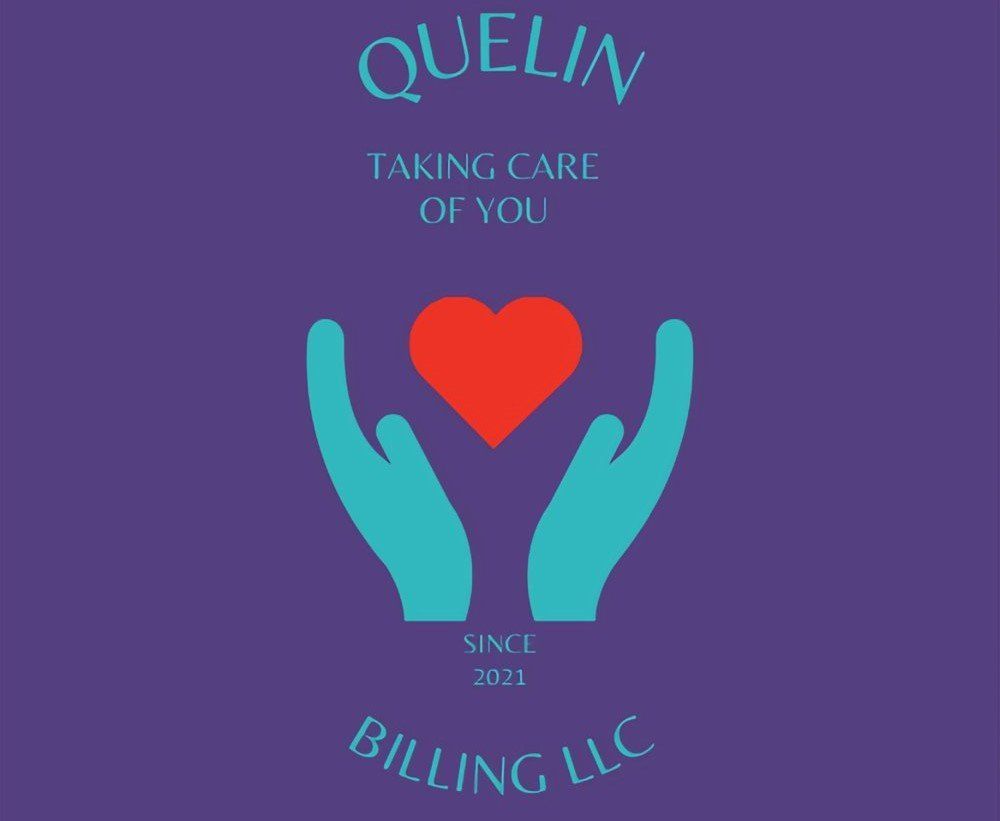Blog

By Arliegh Boswell
•
17 Apr, 2024
A medical practice comes with many challenges, especially if you are running it. Between patient care, managing staff, and staying compliant with regulations, it's easy to get lost and be stressed. An area that can cause a lot of worry is medical billing and coding. Dealing with medical bills and coding procedures accurately and efficiently is crucial for getting paid for the services you provide. But, it's a time-consuming and often confusing process.

By Arliegh Boswell
•
23 Mar, 2024
In the complex world of healthcare, collecting payment for services is as vital as the care itself. Accounts receivable management is the backbone of a healthcare provider's financial health. It involves tracking every dollar owed, from patient co-payments to complex insurance reimbursements.

By Arliegh Boswell
•
27 Feb, 2024
In medical billing, dealing with denials is a big headache for many businesses, especially when it comes to the rejection of insurance claims. It feels like hitting a brick wall. But what if we could turn these setbacks into stepping stones? It's all about learning how to manage denials, seeing them not just as problems but as chances to improve and grow. It is also essential to know how to prevent further denials. Keeping the result in mind- reversing a denial and its prevention- we could approach denial management in various ways, which we will discuss in this article.

By Arliegh Boswell
•
18 Jan, 2024
Effective denial management is crucial for maintaining financial stability and ensuring patient satisfaction in the dynamic and challenging healthcare environment. Healthcare providers often grapple with the complexities of intricate billing systems, evolving insurance protocols, and stringent regulatory demands. This blog aims to shed light on 8 innovative approaches to denial management, which can empower healthcare providers to minimize denials, streamline billing processes, and enhance their financial performance.

By Arliegh Boswell
•
28 Dec, 2023
Do you ever feel like drowning in a sea of medical jargon and endless recordings? Medical transcribing can be daunting, but it can transform from a complicated task into an efficient process with the right tips and tricks.
In this article, we'll understand the easy-to-implement strategies to enhance your medical transcribing skills.

By Arliegh Boswell
•
30 Nov, 2023
Did you know medical billing services are crucial in the healthcare system, particularly in enhancing patient care? They are vital as they serve as the bridge between healthcare providers, patients, and insurance companies, ensuring that the financial aspects of healthcare are managed efficiently and accurately. This article will explore how medical billing services contribute to improved patient care.

By Arliegh Boswell
•
30 Oct, 2023
When we think of healthcare, doctors and nurses often come to mind. However, many behind-the-scenes professionals are vital for healthcare to function smoothly. One of these critical roles is that of the medical biller. Medical billing is submitting and following up on claims to insurance companies. This process ensures that healthcare providers get paid for the medical services they provide. It's a bridge between a doctor's service and the payment for that service. The Role of Medical Billers Medical billers have a detailed role that includes : 1. Preparing and Submitting Claims After a patient sees a doctor, the medical biller codes the service and sends a claim to the insurance company. This claim states what services were provided and how much the insurance should pay. 2. Following up on Claims Medical billers send out claims and check to see if the insurance companies are processing these claims. If the insurance company takes too long or has any problem with the claim, the medical biller steps in. They will contact the insurance company, find out what's causing the delay or the issue, and work to resolve it. 3. Keeping Patient Records One of the primary jobs of a medical biller is to look after patient records. They don't just store these records; they keep them updated. Every time a patient visits, any new information or changes, like a new phone number or a change in insurance, gets updated in the system. They also keep track of the medical services each patient receives. 4. Handling Payments When insurance companies pay, medical billers ensure the payment is correct, and the amount paid by the insurance matches the services given. Sometimes, insurance might only cover part of the amount. In these cases, the medical biller finds out what amount is left. The medical biller then sends a bill or invoice to the patient for this balance. 5. Answering Queries When insurance companies pay, medical billers ensure the payment is correct, and the amount paid by the insurance matches the services given. Sometimes, insurance might only cover part of the amount. In these cases, the medical biller finds out what amount is left. The medical biller then sends a bill or invoice to the patient for this balance. Why are Medical Billers Important? Financial Stability : Healthcare isn't free. Doctors, nurses, and other staff need to get paid. Medical billers ensure that clinics, hospitals, and other providers receive the funds they're due. Without them, there would be financial chaos in the healthcare system. Efficiency : Medical billers help make the process between getting treatment and paying for it smooth. They ensure claims are sent on time and follow strict guidelines set by insurance companies. Patient Trust : Medical billing can be confusing. When patients have questions or concerns about their bills, they need clear answers. Medical billers provide this clarity, building trust between patients and healthcare providers. Final Words While they might not be at the forefront of patient care, medical billers play a critical role in the healthcare system. They ensure that financial transactions go smoothly, that patients understand their bills, and that healthcare providers get paid for their services. The next time you look at a medical bill or hear about the financial side of healthcare, remember the essential work of the medical biller. They are indeed one of the unsung heroes of the medical world.

By Arliegh Boswell
•
30 Sep, 2023
Billing and invoicing are undeniably crucial aspects of any business. Accurate and timely billing helps to promote growth in any company. Managing billing processes in-house is a time-consuming and challenging job to do. That's where outsourced billing comes into play. Let's delve into how outsourcing your billing can boost your business. 1. Focus on Core Competencies From managing operations to customer service and strategic planning, you must bear many responsibilities to operate a business properly. Outsourcing your billing allows you to focus on your core competencies. You can focus on things that make your business grow by leaving the billing process to experts. 2. Accuracy In Billing Billing errors create revenue leakage, client frustration, and issues regarding regulatory compliance. Outsourced billing companies help eliminate these complexities and make your bills accurate, compliant, and up-to-date with the regulations. It reduces the risk of costly disputes or penalties and boosts customer satisfaction. 3. Cash Flow Management Cash flow is the most crucial aspect of your business. Cash flow can be disrupted due to delayed payments or billing errors. You can face challenges to meet financial obligations, invest in growth, or even pay your bills. Outsourced billing services are dedicated to proper invoicing and follow-up, ensuring clients pay on time. You can make informed financial decisions and capture growth opportunities better with a steady cash flow. 4. Access to Cutting-Edge Technology Outsourced billing companies let you benefit from their cutting-edge billing system. It will eliminate the hefty upfront cost, and your billing process will be more streamlined with reduced errors. 5. Scaling Your Business Outsourced billing can easily scale to accommodate your growing billing needs. From handling more invoices to adapting new billing models, an outsourced partner can adjust everything for you. It will ensure more efficient and cost-effective billing operations for you. 6. Overhead Costs Managing an in-house billing department comes with additional expenses, from blocking office space to salaries. Outsourcing the billing process will save this cost and help you keep a more significant profit margin. 7. Customer Satisfaction Accurate and quick billing is vital for your customer relationship. This is where outsourced billing companies have excelled in. They will ensure a seamless billing experience by handling inquiries and resolving disputes. Happy clients will be the source of your business expansion and lasting reputation. 8. Having Peace of Mind Billing errors and compliance issues are stressful in general and also in terms of legal issues. Leaving the billing to the expert hands will provide peace of mind. You can rest knowing that your billing processes are in good shape. To Sum Up In summary, billing outsourcing is a strategic move to power your business. Giving experts the responsibility to tackle your billing process will grant you more time to focus on your main business activities. It will positively impact your business, accuracy, scalability, or customer satisfaction. Consider the benefits of outsourced billing if you need to supercharge your business operations. It may prove to be the game-changer your business craves.

By Arliegh Boswell
•
30 Aug, 2023
Have you ever found yourself lost in a pile of invoices, wishing there was a better way to handle all that billing? Outsourced billing is a secret weapon many practice billing companies use today. It may be the game-changer you've been searching for. Instead of juggling invoices and payments in your office, you let a third-party specialist take the wheel. That's outsourced billing in a nutshell. It's like handing over your recipe book to a chef and letting them cook the perfect dish. 5 Ways In Which Billing Outsourcing Helps 1. Save Those Bucks The most immediate benefit of outsourced billing is the reduction in operational costs. Imagine cutting down on salaries, office overheads, and tech costs. Maintaining an in-house billing department means salaries, benefits, training, software, hardware, and regular updates. These expenses add up over time. By outsourcing, you can save a lot of money. You pay for the service and expertise, typically at a fraction of the cost. The third-party agency is responsible for updating software, training staff, and handling administrative tasks. It translates to substantial savings, allowing you to invest funds into other pivotal aspects of your business. 2. Tap Into Genius Minds Billing might seem straightforward, but it has its intricacies. Outsourcing agencies are specialists. Their core business is to provide accurate, timely, and efficient billing solutions. It means they're always up-to-date with the latest technologies, regulatory changes, and best practices. When you outsource, you hire a team of experts with cutting-edge tools, ensuring your billing process is as efficient and accurate as possible. This level of expertise would be expensive and time-consuming to develop in-house and is better left to a practice billing company. 3. Your Core Biz Needs You Every moment you're not wrestling with invoices is spent nurturing what you do best. Billing, while crucial, is an administrative task. Outsourcing frees up time and resources that can be redirected to core business functions. It allows you to innovate, expand your offerings, and provide better client services. You can focus on what you do best while a team of experts handles the intricate nuances of billing. Let someone else take the numbers while you free up valuable time and resources while focusing on the magic! 4. Safety First Billing involves sensitive customer information and financial data. Sensitive data demands top-shelf security. Trust in practice billing companies that guard your info like a treasure. From secure data transmission to encrypted storage solutions, they take the necessary steps to ensure your data's safety. Moreover, they continually update their protocols to address new security threats and regulatory requirements. Outsourcing your billing means entrusting your data to professionals dedicated to keeping it secure and minimizing risks related to data breaches or non-compliance. No pirates allowed here! 5. Keep Customers Smiling Prompt, error-free billing? That's the stuff of customer dreams. Modern customers expect seamless, hassle-free transactions. They appreciate having multiple payment options, transparent billing, and quick query resolutions. Outsourced practice billing companies have systems to offer a diversified billing experience. Whether it's mobile payments, online portals, or electronic billing, these agencies provide a variety of platforms to cater to the diverse preferences of your clientele. A positive billing experience can significantly influence customer retention and word-of-mouth referrals. To Sum Up Outsourced billing isn't just a trend; it's a strategic move adopted by businesses, both big and small, to streamline operations, reduce costs, and enhance customer satisfaction. By collaborating with a competent practice billing agency, you benefit from their expertise and position your business for sustained growth.

By Arliegh Boswell
•
21 Jul, 2023
In the fast-paced world of healthcare, accurate documentation is essential for delivering quality patient care. Medical transcription, once a time-consuming and labor-intensive task, has witnessed a revolution with the advent of cutting-edge technologies. From artificial intelligence to voice recognition, the medical transcription field is embracing innovative trends that are revolutionizing how healthcare professionals document patient information. 1. AI-Powered Speech Recognition: Talk to Type Gone are the days of deciphering doctors' scribbles or relying on manual transcription. AI-powered speech recognition software is paving the way for seamless and real-time transcription. This technology utilizes natural language processing and machine learning algorithms to convert spoken words into accurate written text. Doctors can now dictate patient notes directly into the system, eliminating the need for manual data entry and reducing the chances of transcription errors. Talk to type is becoming the new norm in medical transcription, enhancing efficiency and streamlining the documentation process. 2. Cloud-Based Transcription Platforms: The Freedom of Mobility With the rise of cloud technology, medical transcription is no longer bound by physical locations. Cloud-based transcription platforms offer healthcare professionals the freedom to access and update patient records from anywhere, at any time. Doctors can securely review and edit transcriptions, collaborate with colleagues, and provide timely and accurate information to patients, all while on the go. The mobility and flexibility provided by cloud-based transcription platforms enable healthcare professionals to deliver superior patient care, regardless of their physical location. 3. Natural Language Processing: Understanding the Context The intricacies of medical terminology and jargon pose unique challenges in transcription. Natural Language Processing (NLP) is a branch of AI that focuses on understanding human language. NLP algorithms analyze the context and meaning of words and phrases to generate accurate transcriptions. This technology can recognize medical terms, identify abbreviations, and adapt to the specific requirements of different medical specialties. By harnessing the power of NLP, medical transcriptionists can produce more accurate and contextually relevant documentation, reducing the chances of misinterpretation or ambiguity. 4. Data Security and HIPAA Compliance: The Shield of Protection In an era of increasing data breaches and privacy concerns, ensuring the security of patient information is paramount. Medical transcription is no exception. Technological advancements in encryption, secure storage, and data transfer protocols have strengthened data security in transcription. Transcription platforms now prioritize HIPAA compliance, employing robust security measures to protect patient records from unauthorized access or breaches. With the shield of protection provided by these technologies, healthcare professionals can confidently document patient information while upholding strict confidentiality and compliance standards. 5. Integration with Electronic Health Records (EHR): Seamless Data Exchange Integrating medical transcription with Electronic Health Records (EHR) systems revolutionize healthcare documentation. Transcriptions can be seamlessly integrated into the patient's electronic record, eliminating the need for manual data entry and minimizing the risk of errors. This integration ensures that the patient's medical history is complete, accurate, and accessible to healthcare providers. Transcription-EHR integration enhances collaboration among healthcare professionals by streamlining the exchange of information, leading to more efficient and coordinated patient care. 6. Data Analytics and Insights: Unlocking the Power of Data The abundance of healthcare data generated through transcription presents an opportunity for valuable insights and analytics. Healthcare providers can analyze trends, identify patterns, and gain meaningful insights from patient records by leveraging data analytics tools. This data-driven approach can enhance clinical decision-making, improve treatment outcomes, and contribute to the advancement of medical research. The ability to unlock the power of data through medical transcription is a game-changer in healthcare, leading to improved patient care and innovative discoveries. As the world of medical transcription continues to evolve, healthcare providers can embrace these technological innovations to unlock the full potential of healthcare documentation in the digital age.
Send us a Message
Business Locations

Main Office
7550 W Interstate 10 Suite 800-1406 San Antonio, TX 78229
Business Hours
- Mon - Fri
- -
- Saturday
- -
- Sunday
- Appointment Only
© 2024
Quelin Billing LLC